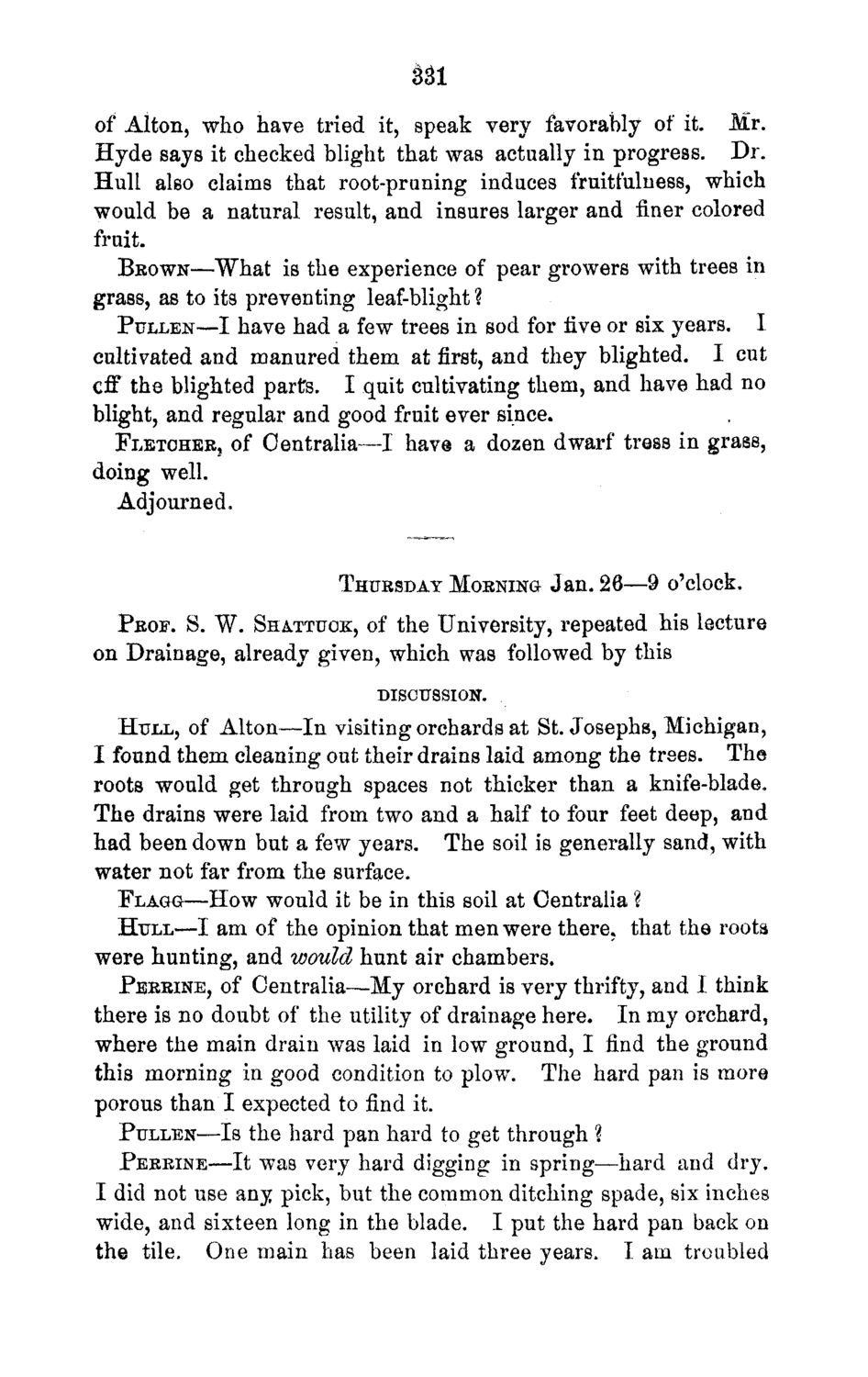| |
| |
Caption: Board of Trustees Minutes - 1870
This is a reduced-resolution page image for fast online browsing.

EXTRACTED TEXT FROM PAGE:
SU of Alton, who have tried it, speak very favorably of it. Mr. Hyde says it checked blight that was actually in progress. Dr. Hull also claims that root-pruning induces fruitfulness, which would be a natural result, and insures larger and finer colored fruit. BROWN—What is the experience of pear growers with trees in grass, as to its preventing leaf-blight ? PULLEN—I have had a few trees in sod for five or six years. I cultivated and manured them at first, and they blighted. I cut cff the blighted parts. I quit cultivating them, and have had no blight, and regular and good fruit ever since. FLETCHER, of Oentralia—I have a dozen dwarf tress in grass, doing well. Adjourned. THURSDAY MORNING Jan. 26—9 o'clock. PROF. S. W. SHATTUOK, of the University, repeated his lecture on Drainage, already given, which was followed by this DISCUSSION. HULL, of Alton—In visiting orchards at St. Josephs, Michigan, I found them cleaning out their drains laid among the trees. The roots would get through spaces not thicker than a knife-blade. The drains were laid from two and a half to four feet deep, and had been down but a few years. The soil is generally sand, with water not far from the surface. FLAGG—How would it be in this soil at Centralia ? H U L L — I am of the opinion that men were there, that the roots were hunting, and would hunt air chambers. PERRINE, of Centralia—My orchard is very thrifty, and I think there is no doubt of the utility of drainage here. In my orchard, where the main drain was laid in low ground, I find the ground this morning in good condition to plow. The hard pan is more porous than I expected to find it. PULLEN—Is the hard pan hard to get through ? PERRINE—It was very hard digging in spring—hard and dry. I did not use any pick, but the common ditching spade, six inches wide, and sixteen long in the blade. I put the hard pan back on the tile. One main has been laid three years. I am troubled
| |